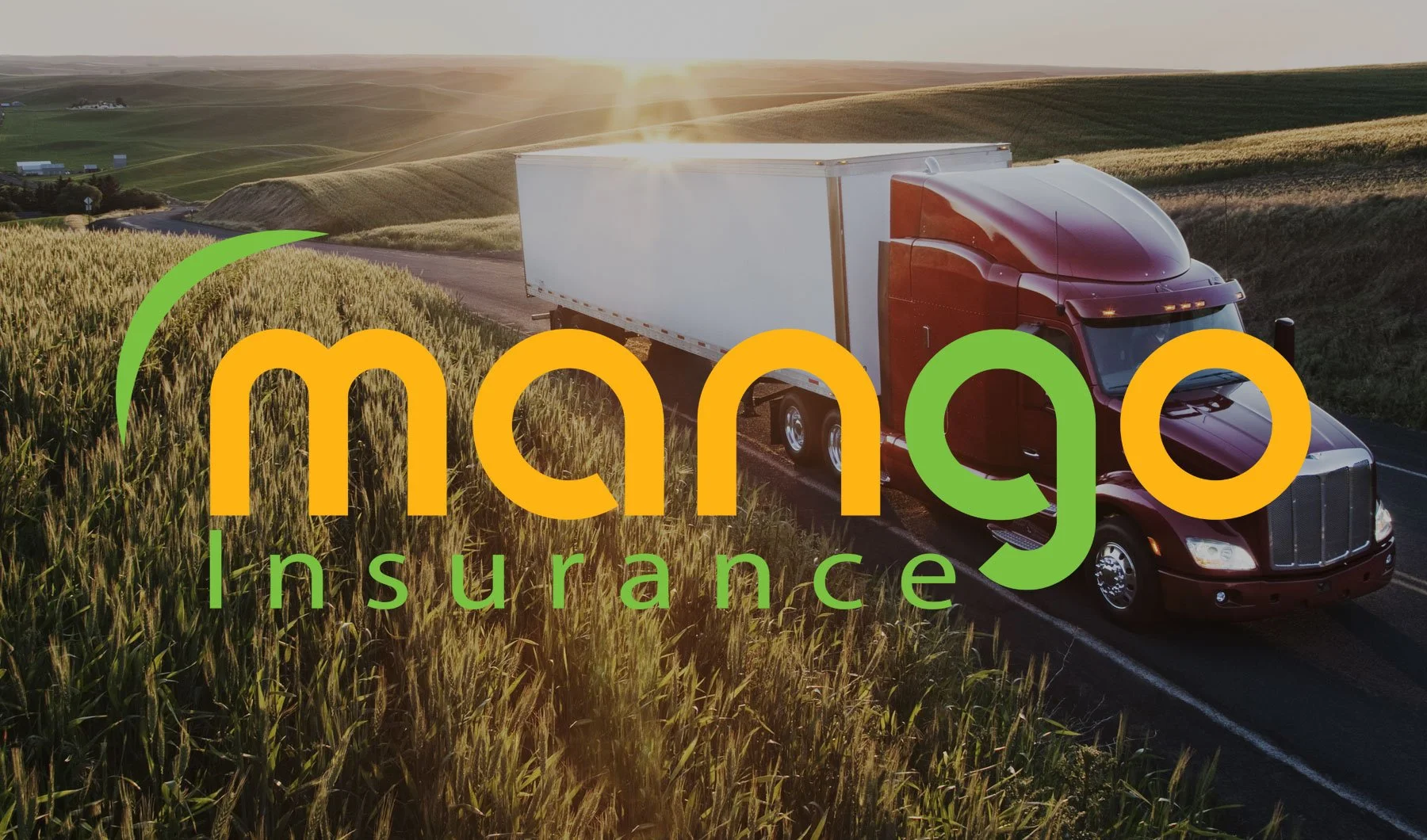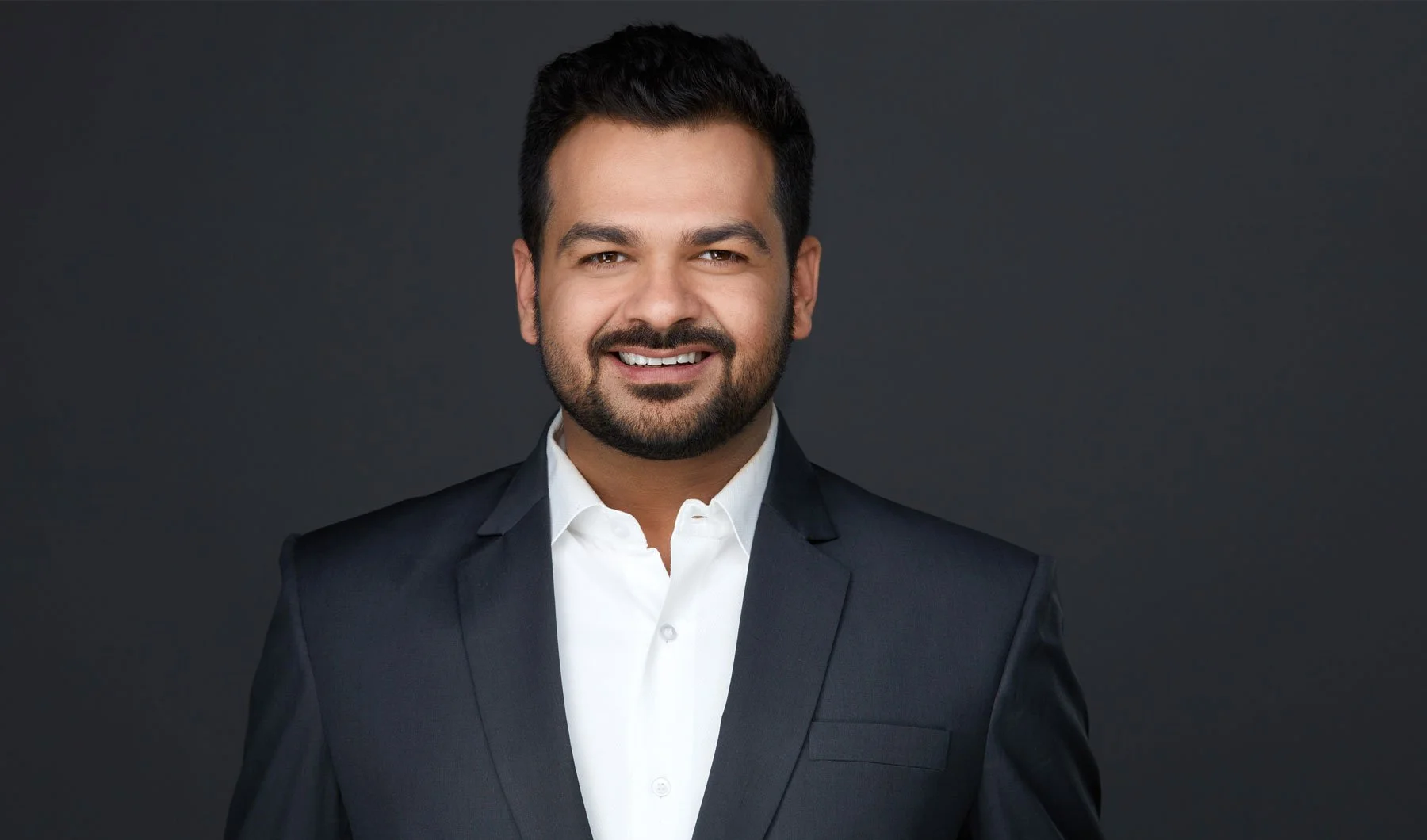Specialization: how putting most of your eggs in one basket can pay off
Mohit Halkare saw a big gap in the insurance market and aimed to fill it. With a single-minded focus on the trucking industry, commitment to a unique business model, and support from IGN, his company’s written premiums increased more than 20-fold over four years.
When Mohit Halkare moved to Canada in 2016, he was struck, as many newcomers are, by the vastness of this country and he made a key observation. “I realized that trucking was the backbone of industry in Canada,” he says. “It’s essential in this landscape.”
He’s right, of course. Rail is pretty efficient at moving goods between major cities. But it’s trucks that move everything from machine parts to food stuffs to the forecourts and loading bays of businesses, large and small, in every city, town and hamlet across this country. And that got him thinking.
“Because of our weather and distances, trucking is a high-risk industry,” says Halkare, president of Mango Insurance in Calgary, Alberta. High risk means high reward in terms of premiums and commissions, but it also means it’s tough to find insurance companies willing to change how they assess and price that risk so that truckers and trucking companies are rewarded for best practices and get the coverage they need at a manageable cost.
With a background in IT and many years in the insurance industry under his belt, Halkare thought he could tackle that problem. “No broker in Alberta was claiming to specialize in transportation,” he says. “And I thought we could really support it.” But to do that, Halkare needed support himself, and he found it in Insurance Growth Network (IGN), which helped him launch his brokerage, Mango, in 2020.
Finding the right road
Halkare began his professional life in computer science working for an IT company in India where he helped test and implement a web-based insurance policy admin system. “I found my passion for insurance,” he says, recounting that early exposure to an industry he’s since built his life around.
He then took his MBA in risk management and insurance and, still in India, went to work for global conglomerate Marsh, where he worked with domestic and multi-national clients on everything from risk mapping and gap analysis to business development and CRM implementation.
When Halkare came to Canada in 2016, he went to work with Excel Insurance Group in Edmonton where he became a partner. It was here that his ideas around the trucking industry formed and took flight in 2018, initially within the Excel Group, but ultimately under its own banner, Mango Insurance, in 2020.
Mohit Halkare, President of Mango Insurance
Re-defining insurance for the transportation sector
Halkare points out that the commercial trucking industry has multiple sub-sectors: short-haul, long-haul, refrigeration, dangerous goods, own goods (such as grocery chains have), livestock and so on. “What we focus on is long-haul, cross-border, non-dangerous goods,” he says – like trucking beef to Texas and bringing machinery back.
“Everything we built, we built around transportation,” he says. “We totally customize every policy to fit each individual business.”
Today, over 90 per cent of Mango’s business is focused on the trucking business. It means that Halkare and his team bring a level of specialist expertise to the complex world of transportation insurance that other brokerages have a hard time matching. For Mango’s clients, this means working with someone who truly understands the vagaries of their business and can offer the kind of stability and advocacy that is too often absent in this sector.
In 2024, Halkare set out to further re-define how insurance in trucking is done by developing and introducing a program called TruckSureIQ, which uses advanced telematics to help with risk mitigation and improve risk management in real time.
So, what are telematics? Well, think of the GPS function in your car or phone – that’s a form of telematics. It combines informatics and telecommunication to deliver real-time, actionable information about your route while you’re on the move. In trucking, telematics is used to monitor everything from driver behaviour to tractor and trailer movement, downtime, fuel use, mechanical health and more.
While the presence of this technology in trucking is not new, Halkare says that, when it comes to policy development, insurance companies had a way of cherry-picking customers and underwriting using old metrics and customs. “They were assessing risk based on old technology,” he says. “Telematics gives you lots and lots of good data, much of which was not being used to appraise risk at all, and we wanted to change that. We wanted to build a product that would leverage technology for better results,” he says.
The result, TruckSureIQ, is a program that provides trucking companies with an advanced risk management tool that helps them improve safety and efficiency throughout their fleet, in real time. For example, fleet owners using TruckSureIQ can see when, say, a truck’s brakes need attention, or a driver needs a training upgrade so they can prevent a safety incident before it happens.
Halkare says the program is all about leveraging that mountain of data to build true risk assessments on a company-by-company basis, write tailored policies to match and bring down costs. “Insurance companies love it,” says Halkare. “They wanted this.”
A unique business model
While Halkare launched what would become Mango under the Excel umbrella, he soon saw that to fully realize his vision for the company, he needed a different kind of partner – one that understood his vision and would support it.
“We were looking for opportunities at the same time that Mohit was looking outward for partners,” says Ben McDonald, CEO of IGN. “He’s a visionary, he’s persistent and he just sees the industry differently.”
For McDonald, that was the ultimate connection point. He thinks the rampant mergers and acquisitions (M&A) activity over the last few years has stifled innovation throughout the industry. He sees middle market brokers, like Mango, as drivers of the sort of new thinking and new approaches the industry needs to stay successful, nimble and relevant.
“Put it this way,” says McDonald. “When you look at an insurance broker, you think, ‘oh, they facilitate insurance.’ But that presumes the broker knows what you need, and maybe they don’t.”
He explains that the best insurance is tailored to a person or business’s actual need, which means that brokers must be able to assess a customer’s situation properly and thoroughly before putting an insurance product in front of them. “We’re risk managers first, and we happen to sell insurance,” says McDonald. It’s not an off-the-shelf business, to his mind. Or at least it shouldn’t be, and that’s what he saw in Halkare – an original thinker who wanted to approach things differently.
“It was a natural fit for us,” he says. “They were able to understand our partnership model and support it. They do everything we need – run finance, HR, accounting, admin – so that we can focus on the customer. IGN is the reason we were able to grow at the pace we have.”
When the two met, Halkare was bucking against the M&A tide. “Everyone wants to sell,” he says. “But I wanted to build something that would be perpetual. I had more of a partnership model in mind for Mango, a way to build entrepreneurs and generations of wealth.”
To achieve that, Halkare devised a unique business structure whereby Mango producers own 50 per cent of their book. “They are true partners,” he says. This model engenders long-term, trusting relationships between the company and its clients – producers are invested, literally, in making sure their clients succeed. “I would say that’s a unique model – it’s unique in this industry at least.”
While this model builds entrepreneurs, it also fosters rapid growth, which can come with a whole other set of challenges. It’s difficult, for instance, to focus on building a client base when admin tasks are weighing you down. Halkare looked to IGN for that admin support and roll with him as Mango grew.
“It was a natural fit for us,” he says. “They were able to understand our partnership model and support it. They do everything we need – run finance, HR, accounting, admin – so that we can focus on the customer. IGN is the reason we were able to grow at the pace we have.”
And that’s quite a pace. Halkare says that Mango has grown from $2 million in gross written premiums (GWP) in 2020 to $45 million in 2024. Incredibly, even with this kind of exponential growth, Halkare says Mango has just touched the tip of the trucking iceberg and is preparing, in 2025, to open a fourth office – proof positive that specializing can have its rewards.


